中华人民共和国驻外外交人员法(中英文对照版)
法律文本
中华人民共和国驻外外交人员法
Law of the People’s Republic of China on Diplomatic Personnel Stationed Abroad
主席令第十九号
Presidential Decree No. 19
《中华人民共和国驻外外交人员法》已由中华人民共和国第十一届全国人民代表大会常务委员会第十一次会议于2009年10月31日通过,现予公布,自2010年1月1日起施行。
The Law of the People's Republic of China on Diplomatic Personnel Stationed Abroad, which was adopted at the 11th session of the Standing Committee of the 11th National People's Congress of the People's Republic of China on October 31, 2009, is hereby promulgated and shall come into effect on January 1, 2010.
中华人民共和国主席 胡锦涛
President Hu Jintao
2009年10月31日
October 31, 2009
(2009年10月31日第十一届全国人民代表大会常务委员会第十一次会议通过)
(Adopted at the 11th session of the Standing Committee of the 11th National People's Congress on October 31, 2009)
目 录
Contents
第一章 总 则
Chapter 1 General Provisions
第二章 职责、条件、义务和权利
Chapter 2 Duties, Conditions, Obligations and Rights
第三章 职务和衔级
Chapter 3 Functions and Ranks
第四章 馆 长
Chapter 4 Curator
第五章 派遣、召回和调回
Chapter 5 Dispatch, Recall and Repatriation
第六章 考核、培训和交流
Chapter 6 Assessment, Training and Exchange
第七章 奖励和惩戒
Chapter 7 Rewards and Penalties
第八章 工资和福利
Chapter 8 Wages and Welfare
第九章 配偶和子女
Chapter 9 Spouse and Children
第十章 附 则
Chapter 10 Supplementary Provisions
第一章 总 则
Chapter 1 General Provisions
第一条 为了建设高素质的驻外外交人员队伍,保证驻外外交机构依法履行职责,规范驻外外交人员的管理,保障驻外外交人员的合法权益,根据宪法和公务员法,制定本法。
Article 1 This Law is formulated in accordance with the Constitution and the Law on Public Servants for the purpose of building high-quality diplomatic personnel teams stationed abroad, ensuring diplomatic missions stationed abroad perform their duties in accordance with the law, regulating the management of diplomatic personnel stationed abroad, and protecting their legitimate rights and interests.
第二条 本法所称驻外外交人员,是指在中华人民共和国驻外外交机构中从事外交、领事等工作,使用驻外行政编制,具有外交衔级的人员。
Article 2 For the purpose of the Law, diplomatic personnel stationed abroad refer to personnel stationed abroad who work as diplomatic or consular staff on diplomatic missions of the People's Republic of China and are authorized administrative staff stationed abroad with diplomatic rank.
本法所称驻外外交机构,是指中华人民共和国驻外国的使馆、领馆以及常驻联合国等政府间国际组织的代表团等代表机构。
For the purposes of this Law, diplomatic missions stationed abroad shall mean embassies and consulates of the People's Republic of China in foreign countries, and delegations in intergovernmental and international organizations such as the United Nations, etc.
驻外外交人员的义务、权利和管理,适用本法。本法未作规定的,适用公务员法的规定。
This Law applies to the obligations, rights and administration of diplomatic personnel stationed abroad. For matters not covered by this Law, the provisions of the Civil Servants Law shall apply.
第三条 驻外外交人员依法履行职责,受法律保护。
Article 3 Performance of duties in accordance with the law by diplomatic personnel stationed abroad shall be protected by law.
第四条 外交部统一领导驻外外交机构的工作,会同其他派出部门对驻外外交人员实施管理。
Article 4 The work of diplomatic missions stationed abroad shall be under the unified leadership of the Ministry of Foreign Affairs, which shall manage diplomatic personnel stationed abroad in conjunction with other dispatching departments.
第二章 职责、条件、义务和权利
Chapter 2 Duties, Conditions, Obligations and Rights
第五条 驻外外交人员应当根据职务和工作分工,履行下列职责:
Article 5 Diplomatic personnel stationed abroad shall perform the following duties according to their functions and work assignments:
(一)维护国家主权、安全、荣誉和利益;
1. To safeguard state sovereignty, security, honor and interests;
(二)贯彻执行国家外交方针政策;
(II) Implement the State's diplomatic guidelines and policies;
(三)代表国家提出外交交涉;
(III) to make diplomatic representations on behalf of the State;
(四)发展中国与驻在国之间的关系,参与国际组织活动,促进双边和多边友好交流与合作;
(IV) develop relations between China and host countries, participate in the activities of international organizations and promote friendly bilateral and multilateral exchanges and cooperation;
(五)维护中国公民和法人在国外的正当权益;
(V) To protect the legitimate rights and interests of Chinese citizens and legal persons in foreign countries;
(六)报告驻在国情况和有关地区、国际形势;
(VI) Report the situations of host countries and relevant regional and international situations;
(七)介绍中国情况和内外政策,增进驻在国和世界对中国的了解;
(VII) Introduce China's situation and domestic and foreign policies in order to enhance understanding of China by host countries and the world;
(八)履行其他外交或者领事职责。
(VIII) perform other diplomatic or consular duties.
特命全权大使是中华人民共和国在驻在国的代表。
The Ambassador Extraordinary and Plenipotentiary is the representative of the People's Republic of China in the host country.
第六条 驻外外交人员应当具备下列条件:
Article 6 Diplomatic personnel stationed abroad shall meet the following conditions:
(一)具有中华人民共和国国籍;
1. Having the nationality of the People's Republic of China;
(二)年满二十三周岁;
2. having reached the age of 23 years old;
(三)拥护中华人民共和国宪法;
(III) to endorse the Constitution of the People's Republic of China;
(四)具有良好的政治素质和品行;
(IV) have good political quality and conduct;
(五)具有胜任工作所需的专业知识、工作能力和语言能力;
(V) having the professional knowledge, working ability and language ability required for competence;
(六)具有常驻国外所要求的身体条件、心理素质和适应能力;
(VI) Possess the physical condition, psychological quality and adaptability required for permanent residence in a foreign country; and
(七)法律规定的其他条件。
(VII) Other conditions stipulated by the law.
第七条 有下列情形之一的,不得任用为驻外外交人员:
Article 7 A person shall not be appointed to serve as diplomatic personnel stationed abroad if he/she:
(一)曾因犯罪受过刑事处罚的;
1. having been subjected to criminal punishment for commission of a crime;
(二)曾被开除公职的;
2. having been discharged from public employment;
(三)曾被国家机关辞退的;
(III) having been dismissed by a State organ;
(四)持有外国长期或者永久居留许可的;
(IV) holding a long-term or permanent residence permit issued by a foreign country;
(五)配偶具有外国国籍、持有外国长期或者永久居留许可的;
(V) His/her spouse has foreign nationality or holds a long-term or permanent residence permit issued by a foreign country; or
(六)不得任用为驻外外交人员的其他情形。
(VI) Other circumstances where a person shall not be appointed to serve as diplomatic personnel stationed abroad.
第八条 驻外外交人员应当履行下列义务:
Article 8 Diplomatic personnel stationed abroad shall perform the following obligations:
(一)忠于祖国和人民,维护国家尊严;
1. be loyal to the motherland and the people, and safeguard national dignity;
(二)忠于中华人民共和国宪法和法律,尊重驻在国的法律和风俗习惯;
(II) Be loyal to the Constitution and laws of the People's Republic of China and respect the laws and customs of host countries;
(三)忠于职守,勤勉尽责,完成各项工作任务;
(III) being loyal to his duties, being diligent and responsible, and accomplishing various work tasks;
(四)服从派出部门的调遣,遵守驻外外交机构规章制度和工作纪律;
(IV) obey command of the dispatching departments and comply with the rules, regulations and work disciplines of diplomatic missions stationed abroad;
(五)严守国家秘密和工作秘密;
(V) To strictly keep state secrets and work-related secrets;
(六)不得在驻外工作期间辞职;
(VI) not resign while working abroad;
(七)按照规定向驻外外交机构和派出部门报告个人重大事项;
(VII) Report important personal matters to diplomatic missions stationed abroad and dispatching departments in accordance with relevant provisions; and
(八)法律规定的其他义务。
(VIII) Other obligations stipulated by laws.
第九条 驻外外交人员享有下列权利:
Article 9 Diplomatic personnel stationed abroad shall enjoy the following rights:
(一)获得履行职责应当具有的工作条件;
1. Having the working conditions necessary for performing their duties;
(二)获得与常驻国外工作、生活相适应的工资福利保险待遇;
(II) Be entitled to a salary, welfare, insurance and treatment commensurate to working and living in a foreign country;
(三)在驻外工作期间不被辞退;
(III) He/she shall not be dismissed while working abroad; and
(四)派遣前和驻外工作期间参加培训;
(IV) participate in training before being dispatched and during the period of working abroad;
(五)法律规定的其他权利。
(V) other rights as provided for by law.
第十条 驻外外交人员依照中华人民共和国缔结或者参加的国际条约,在驻外工作期间享有相应的特权和豁免。
Article 10 Diplomatic personnel stationed abroad shall enjoy corresponding privileges and immunities during the period when they work abroad pursuant to international treaties concluded or acceded to by the People's Republic of China.
驻外外交人员不得滥用特权和豁免,未经批准不得放弃特权和豁免。
Diplomatic personnel stationed abroad shall neither abuse their privileges and immunities nor waive them without approval.
第三章 职务和衔级
Chapter 3 Functions and Ranks
第十一条 驻外外交人员的职务分为外交职务和领事职务。
Article 11 The functions of diplomatic personnel stationed abroad are divided into diplomatic posts and consular posts.
外交职务分为:特命全权大使、代表、副代表、公使、公使衔参赞、参赞、一等秘书、二等秘书、三等秘书、随员。
Diplomatic posts are: Ambassador Extraordinary and Plenipotentiary, Representative, Vice-Representative, Minister, Minister-Counselor, Counselor, First Secretary, Second Secretary, Third Secretary and Attaché.
领事职务分为:总领事、副总领事、领事、副领事、领事随员。
Consular posts are: Consul-General, Vice-Consul-General, Consul, Vice-Consul and Consular Attaché.
第十二条 驻外外交人员实行外交衔级制度。
Article 12 Diplomatic personnel stationed abroad shall implement the diplomatic rank system.
外交衔级设七级:大使衔、公使衔、参赞衔、一等秘书衔、二等秘书衔、三等秘书衔、随员衔。
Diplomatic ranks have seven levels: Ambassador, Minister, Counselor, First Secretary, Second Secretary, Third Secretary and Attaché.
驻外外交人员的外交衔级,根据其在驻外外交机构中担任的职务、公务员职务级别和外交工作需要确定。
Diplomatic ranks of diplomatic personnel stationed abroad shall be determined according to their positions in diplomatic missions, post levels of civil servants and diplomatic work requirements.
第十三条 外交职务与外交衔级的基本对应关系为:
Article 13 Basic relations between diplomatic posts and diplomatic ranks are as follows:
(一)特命全权大使:大使衔;
(I) Ambassador Extraordinary and Plenipotentiary: rank of Ambassador;
(二)代表、副代表:大使衔、公使衔、参赞衔;
2. Representative or Vice-Representative: rank of Ambassador, Minister or Counselor;
(三)公使、公使衔参赞:公使衔;
(III) Minister, Minister Counselor: rank of Minister;
(四)参赞:参赞衔;
(IV) Counselor: rank of Counselor;
(五)一等秘书:一等秘书衔;
(V) First Secretary: rank of First Secretary;
(六)二等秘书:二等秘书衔;
(VI) Second Secretary: rank of Second Secretary;
(七)三等秘书:三等秘书衔;
(VII) Third Secretary: rank of Third Secretary; and
(八)随员:随员衔。
(VIII) Attaché: rank of Attaché.
第十四条 领事职务与外交衔级的基本对应关系为:
Article 14 Basic relations between consular posts and diplomatic ranks are as follows:
(一)总领事:大使衔、公使衔、参赞衔;
1. Consul-General: rank of Ambassador, Minister or Counselor;
(二)副总领事:参赞衔;
(II) Deputy Consul-General: rank of Counselor;
(三)领事:参赞衔、一等秘书衔、二等秘书衔;
(III) Consul: rank of Counselor, First Secretary or Second Secretary;
(四)副领事:三等秘书衔、随员衔;
(IV) Vice Consul: rank of Third Secretary or Attaché;
(五)领事随员:随员衔。
(V) Consular Attaché: rank of Attaché.
第十五条 驻外外交人员的职务和外交衔级与公务员职务级别的对应关系另行规定。
Article 15 Correspondence between posts and diplomatic ranks of diplomatic personnel stationed abroad and post levels of civil servants shall be separately provided.
第十六条 驻外外交人员的职务按照下列权限决定:
Article 16 The posts of diplomatic personnel stationed abroad shall be decided in accordance with the following limits of authority:
(一)特命全权大使和代表、副代表为特命全权大使的,由全国人民代表大会常务委员会决定;
1. Ambassadors Extraordinary and Plenipotentiary or Representatives or Vice-Representatives who are Ambassadors Extraordinary and Plenipotentiary shall be decided by the Standing Committee of the National People's Congress;
(二)前项之外的代表、副代表,由国务院决定;
(II) Deputies other than those specified in the preceding paragraph shall be subject to decision by the State Council; and
(三)总领事,由外交部决定;
3. Consul-Generals shall be decided by the Ministry of Foreign Affairs; and
(四)公使、公使衔参赞、参赞、副总领事以及其他驻外外交人员的职务,由外交部或者其他派出部门决定;其中,三等秘书、副领事以下职务,在驻外工作期间由驻外外交机构决定。
(IV) Ministers, Minister-Counselors, Counselors, Deputy Consul-Generals and other diplomatic personnel stationed abroad shall be decided by the Ministry of Foreign Affairs or other dispatching departments; among them, positions of Third Secretary and Vice Consul and below them shall be decided by diplomatic missions stationed abroad during the period they work abroad.
第十七条 外交衔级按照下列权限批准和授予:
Article 17 Diplomatic ranks shall be approved and conferred according to the following limits of authority:
(一)大使衔,由国务院总理批准授予;
1. Rank of Ambassador shall be approved and granted by the Premier of the State Council;
(二)公使衔、参赞衔,由外交部或者其他派出部门批准,外交部部长授予;
(II) Ranks of Minister and Counselor shall be approved by the Ministry of Foreign Affairs or dispatching departments and granted by the Minister of Foreign Affairs;
(三)一等秘书衔、二等秘书衔,派遣时由派出部门批准和授予,驻外工作期间由派出部门根据驻外外交机构的意见批准和授予;
(III) Ranks of First Secretary and Second Secretary shall be approved and granted by the dispatching departments when dispatching, and shall be approved and granted by the dispatching departments based on opinions of diplomatic missions stationed abroad during the period of working abroad; and
(四)三等秘书衔、随员衔,派遣时由派出部门批准和授予,驻外工作期间由驻外外交机构批准和授予。
(IV) Ranks of Third Secretary and Attaché shall be approved and granted by the dispatching departments when dispatching, and shall be approved and granted by diplomatic missions stationed abroad during the period of working abroad.
第十八条 驻外外交人员晋升三等秘书、副领事以及相应的衔级,按照规定的晋升条件、期限,分别依照本法第十六条、第十七条规定的权限逐级晋升;经考核不具备晋升条件的,根据驻外外交机构的意见,经派出部门批准,延期晋升。
Article 18 Promotion of diplomatic personnel stationed abroad to Third Secretary, Vice Consul or corresponding ranks shall be made level by level based on specified promotion conditions and duration and in accordance with the authority limits specified in Articles 16 and 17 respectively of the Law; where diplomatic personnel do not meet the conditions for promotion upon assessment, their promotion may be deferred upon approval by the dispatching department and by taking into account the opinions of the diplomatic mission stationed abroad.
驻外外交人员晋升二等秘书、一等秘书、参赞、公使衔参赞、公使或者领事、副总领事以及相应的衔级,根据晋升条件、期限和驻外外交机构提出的晋升意见,分别依照本法第十六条、第十七条规定的权限,逐级择优晋升。
When promoting diplomatic personnel stationed abroad to the rank of Second Secretary, First Secretary, Counselor, Minister-Counselor, Minister or Consul, or Deputy Consul-General, or corresponding ranks, the level-by-level merit-based promotion system shall apply in accordance with the promotion conditions, duration and promotion opinions given by diplomatic missions stationed abroad and the authority specified in Articles 16 and 17 respectively of this Law.
驻外外交人员晋升职务和衔级的条件、期限另行规定。
Conditions for promotion of diplomatic personnel stationed abroad to higher ranks and functions and the time limits involved shall be provided separately.
第十九条 驻外外交人员在受处分期间,其职务和衔级不予晋升。
Article 19 Diplomatic personnel stationed abroad shall not be promoted to higher functions and ranks during the period of disciplinary action.
第二十条 驻外外交人员受到降级、撤职处分的,应当按照规定降低衔级。降低衔级不适用于随员衔。
Article 20 Where diplomatic personnel stationed abroad are demoted or removed from their posts, their ranks shall be demoted in accordance with the relevant provisions. Demotion does not apply to the rank of Attaché.
驻外外交人员离任回国,其衔级相应终止。从事外交工作确有需要的,可以保留。具体办法由外交部会同国务院有关部门另行规定。
If foreign diplomatic personnel leave their posts and return, their ranks shall be terminated accordingly. If it is truly necessary for a person to engage in diplomatic work, the reservation shall be made. Specific measures shall be separately formulated by the Ministry of Foreign Affairs jointly with relevant departments of the State Council.
第四章 馆 长
Chapter 4 Curator
第二十一条 馆长是驻外外交机构的行政首长。特命全权大使为大使馆的馆长。代表为常驻联合国等政府间国际组织的代表机构的馆长。总领事为总领事馆的馆长。领事为领事馆的馆长。
Article 21 The head of a diplomatic mission stationed abroad is the chief executive of a diplomatic mission. The Ambassador Extraordinary and Plenipotentiary is the head of the Embassy. A Representative is the head of a permanent mission to the United Nations or another international intergovernmental organization. The Consul General is the head of the Consulate General. A consul is the head of a consulate.
驻外外交机构实行馆长负责制。馆长统一领导驻外外交机构的各项工作。
Diplomatic missions stationed abroad implement the head responsibility system. All work of diplomatic missions stationed abroad are under the unified leadership of the heads of diplomatic missions.
第二十二条 馆长缺位或者因故不能执行职务时,由被指定的人员代理馆长行使职责。
Article 22 In the absence of a head of a diplomatic mission or where the head is unable to perform his/her duties for any reason, a designated person shall perform duties on his/her behalf.
第二十三条 馆长应当向派出部门提交到任和离任的书面报告。
Article 23 The heads of diplomatic missions shall submit written reports to the dispatching departments on assumption of post and on leaving their post.
馆长应当按期回国述职。
The head of a mission shall return to the country as scheduled for consultations.
第五章 派遣、召回和调回
Chapter 5 Dispatch, Recall and Repatriation
第二十四条 特命全权大使和代表、副代表为特命全权大使的,由中华人民共和国主席根据全国人民代表大会常务委员会的决定派遣和召回。
Article 24 Ambassadors Extraordinary and Plenipotentiary as well as Representatives and Vice-Representatives who are Ambassadors Extraordinary and Plenipotentiary shall be dispatched and recalled by the President of the People's Republic of China in accordance with the decision of the Standing Committee of the National People's Congress.
前款以外的代表、副代表,由国务院或者派出部门派遣和调回。
Representatives and Vice-Representatives other than those specified in the preceding paragraph shall be dispatched and recalled by the State Council or dispatching departments.
其他驻外外交人员,由外交部或者其他派出部门派遣和调回。
Other diplomatic personnel stationed abroad may be dispatched and recalled by the Ministry of Foreign Affairs or other dispatching departments.
第二十五条 驻外外交人员实行任期制度。根据工作需要,经派出部门批准,驻外外交人员的任职期限可以适当缩短或者延长。
Article 25 The system of term of office applies to diplomatic personnel stationed abroad. The term of office of diplomatic personnel stationed abroad may be appropriately shortened or extended according to work requirements and upon approval of the relevant dispatching departments.
第二十六条 驻外外交人员有下列情形之一的,应当提前调回:
Article 26 Where diplomatic personnel stationed abroad fall under any of the following circumstances, they shall be recalled in advance:
(一)另有工作安排的;
1. there is another work arrangement;
(二)不能履行职责的;
(II) being unable to perform duties;
(三)触犯法律或者严重违纪的;
(III) He/she violates laws or seriously violates discipline;
(四)配偶取得外国国籍、外国长期或者永久居留许可的;
(IV) His/her spouse obtains foreign nationality or a long-term or permanent residence permit issued by a foreign country; or
(五)不宜继续在驻外外交机构工作的其他情形。
(V) Other circumstances where he/she is no longer suitable for continuing to work in the diplomatic mission stationed abroad.
第二十七条 国家可以根据需要紧急召回、调回或者撤出相关驻外外交机构的部分人员或者全部人员。
Article 27 The State may, as needed, urgently recall, recall or withdraw certain or all personnel from relevant diplomatic missions stationed abroad.
第六章 考核、培训和交流
Chapter 6 Assessment, Training and Exchange
第二十八条 对驻外外交人员的考核分为平时考核和定期考核,由驻外外交机构或者派出部门按照国家规定组织实施。
Article 28 Assessment of diplomatic personnel stationed abroad shall be divided into daily assessment and regular assessment and shall be organized and conducted by diplomatic missions stationed abroad or dispatching departments in accordance with the provisions of the State.
对驻外外交人员的考核,以其承担的职责和工作任务为基本依据,全面考核德、能、勤、绩、廉,重点考核工作实绩。
Assessment of diplomatic personnel stationed abroad shall be based on the responsibilities and tasks they undertake and shall comprehensively assess their work performance with respect to morality, ability, diligence, achievements and honesty.
考核的结果作为调整驻外外交人员职务、衔级、级别、工资以及对驻外外交人员进行奖励、培训等的依据。
Assessment results shall be taken as the basis for adjustment of posts, ranks, levels and salaries of diplomatic personnel stationed abroad and for granting rewards and providing training to diplomatic personnel stationed abroad.
第二十九条 派遣前和驻外工作期间,根据工作职责的要求,应当对驻外外交人员进行任职和专业培训。
Article 29 According to the requirements of work duties, post-related and professional training shall be provided to diplomatic personnel stationed abroad before being dispatched and during the period of working abroad.
第三十条 驻外外交人员应当在驻外外交机构之间进行任职交流;根据工作需要,也可以在派出部门或者其他机关之间进行任职交流。
Article 30 Diplomatic personnel stationed abroad shall be transferred to hold office in another diplomatic mission stationed abroad, or may be transferred to the relevant dispatching department or another organ based on work requirements.
第三十一条 驻外外交人员的培训情况和任职交流经历,列入考核内容。
Article 31 Training received by and experience of diplomatic personnel stationed abroad shall be included in assessment.
第七章 奖励和惩戒
Chapter 7 Rewards and Penalties
第三十二条 驻外外交机构或者驻外外交人员有下列情形之一的,依法给予奖励:
Article 32 Rewards shall be granted to diplomatic missions or diplomatic personnel stationed abroad for any of the following acts:
(一)为维护国家主权、安全、荣誉和利益作出重大贡献的;
1. Great contributions to safeguarding national sovereignty, security, honor and interests;
(二)为维护中国公民和法人在国外的人身、财产安全或者其他正当权益作出突出贡献的;
2. having made outstanding contributions to safeguarding the personal and property safety or other legitimate rights and interests of Chinese citizens and legal persons in foreign countries;
(三)在应对重大突发事件中作出重大贡献的;
(III) Significant contributions to significant emergencies;
(四)在战乱等特定艰苦环境中有突出事迹的;
(IV) having performed outstanding deeds in war-torn or other specific difficult environments;
(五)为保护国家秘密作出突出贡献的;
(V) Outstanding contributions to the protection of state secrets;
(六)遵守纪律,廉洁奉公,作风正派,办事公道,模范作用突出的;
(VI) observing disciplines, being clean-fingered in performing his official duties, working in an upright way, playing an outstanding exemplary role;
(七)尽职尽责,工作实绩突出的;
(VII) Being duteous and having an outstanding work performance; or
(八)有其他突出表现应当给予奖励的。
(VIII) Other outstanding performance for which rewards shall be given.
第三十三条 驻外外交人员有下列行为之一的,依法给予相应的处分;构成犯罪的,依法追究刑事责任:
Article 33 Where diplomatic personnel stationed abroad commit any of the following acts, they shall be given corresponding sanctions in accordance with the law; if their acts constitute a crime, they shall be investigated for criminal liability in accordance with the law:
(一)损害国家主权、安全、荣誉和利益的;
1. Harming national sovereignty, security, honor and interests;
(二)擅自脱离驻外外交机构的;
2. Breaking away from diplomatic missions stationed abroad without authorization;
(三)泄露国家秘密或者工作秘密的;
3. Divulging any state secret or work secret;
(四)利用职务之便为自己或者他人谋取私利的;
(IV) seeking personal gains for himself or for others by taking advantage of his position;
(五)从事或者参与营利性活动,在企业或者其他营利性组织中兼任职务的;
(V) engaging in or participating in profit-making activities or concurrently holding a post in an enterprise or any other profit-making organization;
(六)玩忽职守,贻误工作的;
(VI) to neglect duties, affect the work adversely;
(七)不服从调遣,拒绝赴派往的岗位工作的;
(VII) refusing to obey assignments or refusing to work at the post assigned to them; or
(八)有其他违法或者违纪行为的。
(VIII) other acts in violation of laws or discipline.
第三十四条 外交部或者其他派出部门依照法定的权限和程序对驻外外交机构进行奖励,对驻外外交人员给予奖励或者惩戒。
Article 34 The Ministry of Foreign Affairs or other dispatching departments shall, in accordance with statutory authority limits and procedures, grant rewards to diplomatic missions stationed abroad, and grant rewards to or impose punishments on diplomatic personnel stationed abroad.
第八章 工资和福利
Chapter 8 Wages and Welfare
第三十五条 驻外外交人员实行职务、衔级与级别相结合的驻外工资制度。
Article 35 Diplomatic personnel stationed abroad shall be subject to an overseas staff salary system based on posts, ranks and levels.
第三十六条 国家建立驻外外交人员工资调整机制,适时调整驻外外交人员的工资和生活待遇。
Article 36 The State establishes a salary adjustment mechanism for diplomatic personnel stationed abroad to adjust salaries and living treatment for diplomatic personnel stationed abroad in due time.
第三十七条 驻外外交人员按照国家规定享受津贴、补贴。
Article 37 Diplomatic personnel stationed abroad shall be entitled to allowances and subsidies in accordance with the provisions of the State.
第三十八条 国家为驻外外交人员提供必要的医疗保障和安全措施,并按照有关规定提供必要的人身意外伤害保险。
Article 38 The State shall provide necessary medical care and safety measures to diplomatic personnel stationed abroad and shall purchase necessary personal accident insurance in accordance with relevant provisions.
第三十九条 驻外外交人员享受国家规定的带薪年休假和任期假。
Article 39 Diplomatic personnel stationed abroad shall be entitled to the paid annual leave and leave for the term of office specified by the State.
第九章 配偶和子女
Chapter 9 Spouse and Children
第四十条 驻外外交人员办理结婚手续前,应当按照规定如实向派出部门报告结婚对象的身份等情况。
Article 40 Before going through marriage formalities, diplomatic personnel stationed abroad shall truthfully report the identity of their prospective marriage partner and other information to the relevant dispatching department in accordance with the provisions.
驻外外交人员离婚,应当及时向派出部门报告。
Divorce of diplomatic personnel stationed abroad shall be promptly reported to the dispatching department.
第四十一条 驻外外交人员的配偶随任,应当经派出部门批准。
Article 41 Where the spouses of diplomatic personnel stationed abroad intend to accompany such diplomatic personnel abroad, approval shall be obtained from the relevant dispatching department.
驻外外交人员任期结束或者提前调回的,随任配偶应当同时结束随任。
Where the term of office of diplomatic personnel stationed abroad ends or he/she is recalled before the normal end of his/her term of office, the accompanying spouse shall also leave for home with such diplomatic personnel.
第四十二条 驻外外交人员配偶随任期间,根据驻外外交人员的职务和衔级、任职年限和驻在国生活条件,享受规定的休假待遇。
Article 42 Spouses of diplomatic personnel stationed abroad who accompany such personnel abroad shall be entitled to relevant vacations during their stay abroad according to the functions, ranks and length of working time of the diplomatic personnel and living conditions in the relevant host countries.
第四十三条 驻外外交人员配偶为国家机关、事业单位在编人员,国有独资企业、国有独资公司、国有资本控股公司人员或者现役军人的,随任期间和结束随任回国后在原单位的工作安排,按照国家规定办理;原单位不得因其随任将其开除、辞退或者收取补偿金、管理费等费用。
Article 43 Where the spouse of a diplomatic officer stationed abroad is a permanent employee of a State organ or public institution, a staff member of a wholly state-owned enterprise, wholly state-owned company or state-controlled company or a serviceman in active service, the arrangements for work in his/her original employer during or after his/her return to the home country shall be subject to the provisions of the State; the original employer shall not expel or dismiss him/her or charge him/her compensation or management fee, etc. for his/her service.
第四十四条 驻外外交人员配偶未随任的,经派出部门批准,可以赴驻外外交机构探亲,按照规定享受相应的探亲假、旅费和补贴。
Article 44 Where spouses of diplomatic personnel stationed abroad do not accompany them, spouses may go to diplomatic missions to visit such diplomatic personnel upon approval of the relevant dispatching departments and may enjoy corresponding home leave, travel expenses and subsidies in accordance with the relevant provisions.
第四十五条 驻外外交人员的未成年子女,经派出部门批准,可以赴驻外外交机构随居或者探亲。
Article 45 Minor children of diplomatic personnel stationed abroad may go to diplomatic missions to live with them or visit diplomatic personnel upon approval of the dispatching departments.
国家采取多种措施,保障驻外外交人员的未成年子女依法享有受教育的权利。
The State adopts various measures to ensure that minor children of diplomatic personnel stationed abroad enjoy the right to receive education in accordance with the law.
第四十六条 随任、随居和探亲的驻外外交人员配偶、子女,应当遵守驻外外交机构规章制度,尊重驻在国的法律和风俗习惯。
Article 46 Spouses and children of diplomatic personnel stationed abroad who accompany, live with or visit such diplomatic personnel shall abide by the rules and regulations of diplomatic missions and respect the laws, customs and habits of the host country.
第十章 附 则
Chapter 10 Supplementary Provisions
第四十七条 驻外外交机构武官参照本法管理,具体办法由中央军事委员会制定。
Article 47 This Law shall apply as a reference to the administration of military officers of diplomatic missions stationed abroad. Specific measures shall be formulated by the Central Military Commission.
第四十八条 本法自2010年1月1日起施行。
Article 48 This Law shall be effective 1 January 2010.
©本站文章、图片等内容知识产权归作者所有。本站所有内容均来源于网络,仅供学习交流使用!
转载请注明出处: 法总荟 » 中华人民共和国驻外外交人员法(中英文对照版)
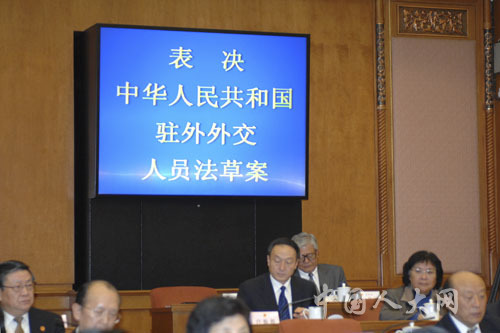
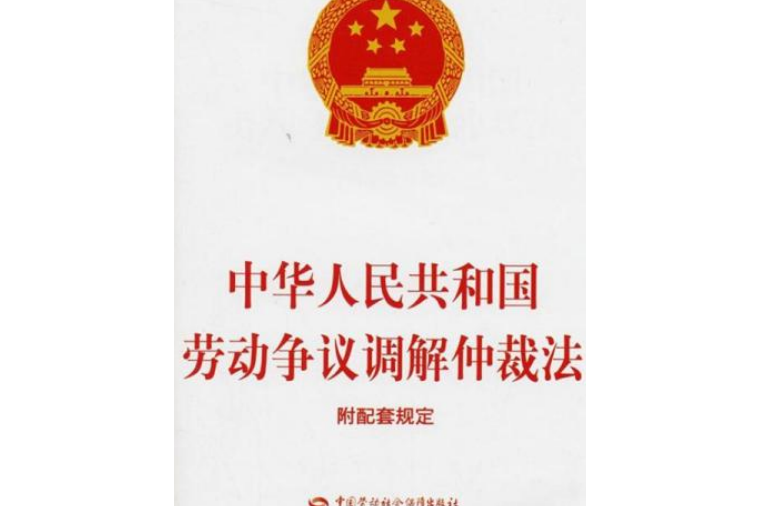
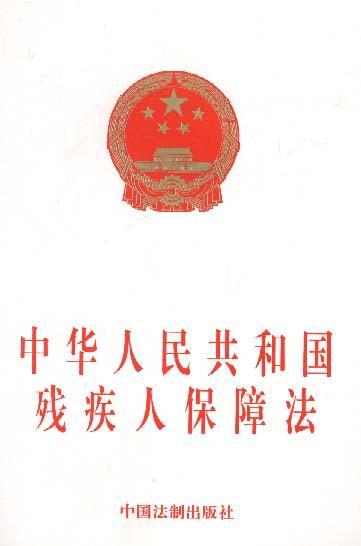
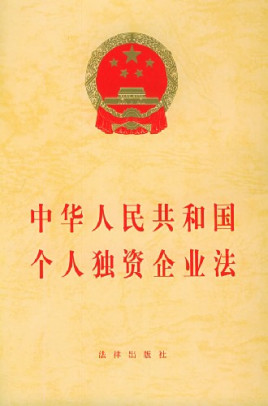
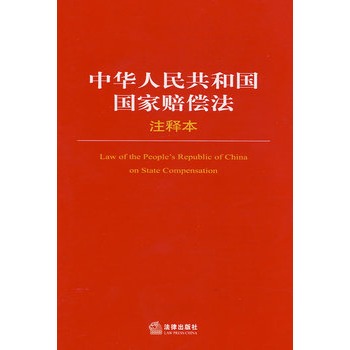
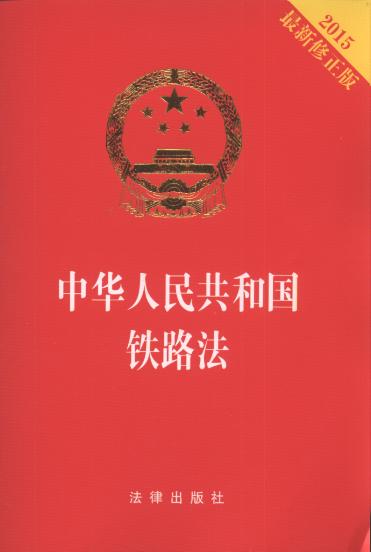
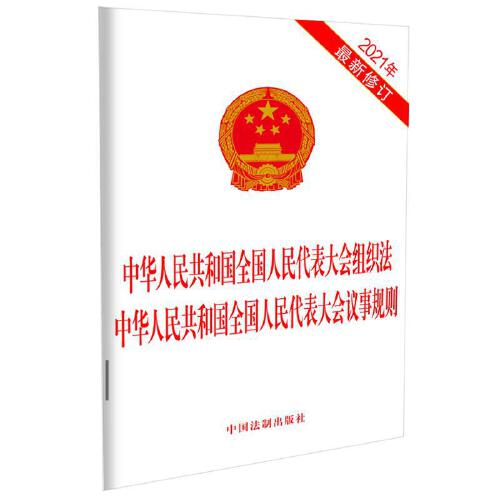


发表评论 取消回复